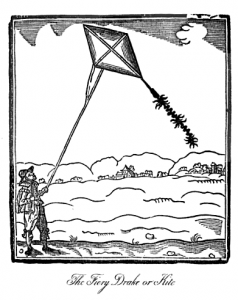The website of the Golden Cockerel import firm includes a rather elaborate warning as to why its matryoshka are not meant for the under-12 set, at least not since the enactment of the calamitous Jan-Schakowsky–backed law:
the law requires each batch of toys be tested by a 3rd party laboratory to be sure they are “toy safe.” Such tests can cost well over $1000 per nesting doll set! And sometimes, as with our museum quality one-of-a-kind dolls, a “batch” consists entirely of one doll, or only a few, making it totally unfeasible to test.
CPSIA: reserving treasured toys for strictly adult use since 2008.
More: The CPSC has just sided with purported consumer groups and against pleas from the business community in adopting a broad definition of what constitute “children’s products” under the disastrous Barbara-Boxer–backed law: for example, ordinary paper clips must go through costly separate CPSIA testing when meant for kids’ use as part of a science kit with magnets and similar items [NY Times, AP/WaPo (“Kids’ science kits may take hit from safety ruling”), Commissioners Anne Northup and Nancy Nord]
Filed under: Barbara Boxer, CPSC, CPSIA, CPSIA and toys, Henry Waxman, Jan Schakowsky, schools, science and scientists

 A nonprofit in suburban Chicago each year encourages its woodworker members “to craft and donate wooden Christmas toys to less fortunate children.” After donating upwards of 700 toys a year in the past, it will have to discontinue the program in future since it can’t afford the third-party testing required under the Consumer Product Safety Improvement Act, sponsored by area members of Congress Bobby Rush and Jan Schakowsky (D-Ill.). “Woodworking hobby magazines have pegged prices for third-party testing as high as $30,000 for 80 items.” Testing is particularly impractical for items made from donated/recycled wood, since each donated wood source needs to be put through separate testing. Another triumph for CPSIA! [
A nonprofit in suburban Chicago each year encourages its woodworker members “to craft and donate wooden Christmas toys to less fortunate children.” After donating upwards of 700 toys a year in the past, it will have to discontinue the program in future since it can’t afford the third-party testing required under the Consumer Product Safety Improvement Act, sponsored by area members of Congress Bobby Rush and Jan Schakowsky (D-Ill.). “Woodworking hobby magazines have pegged prices for third-party testing as high as $30,000 for 80 items.” Testing is particularly impractical for items made from donated/recycled wood, since each donated wood source needs to be put through separate testing. Another triumph for CPSIA! [